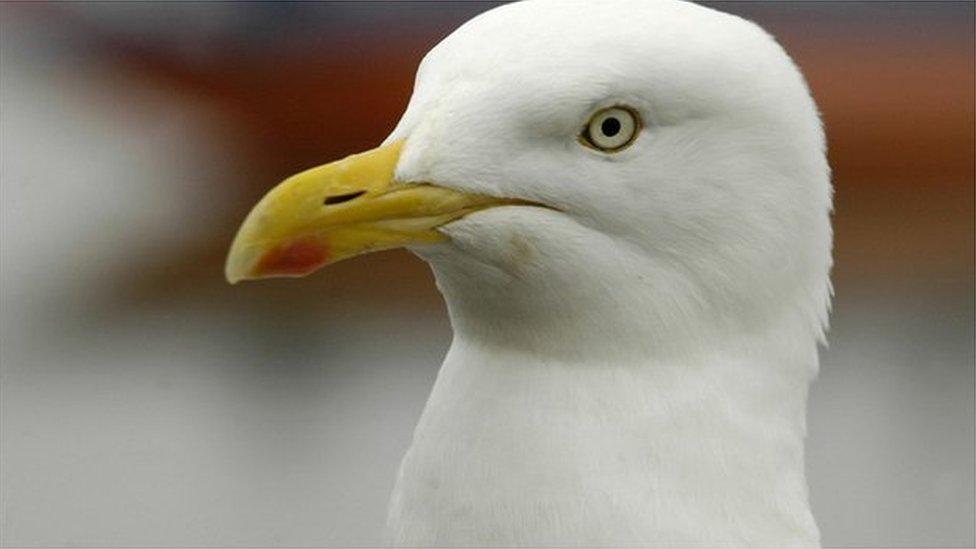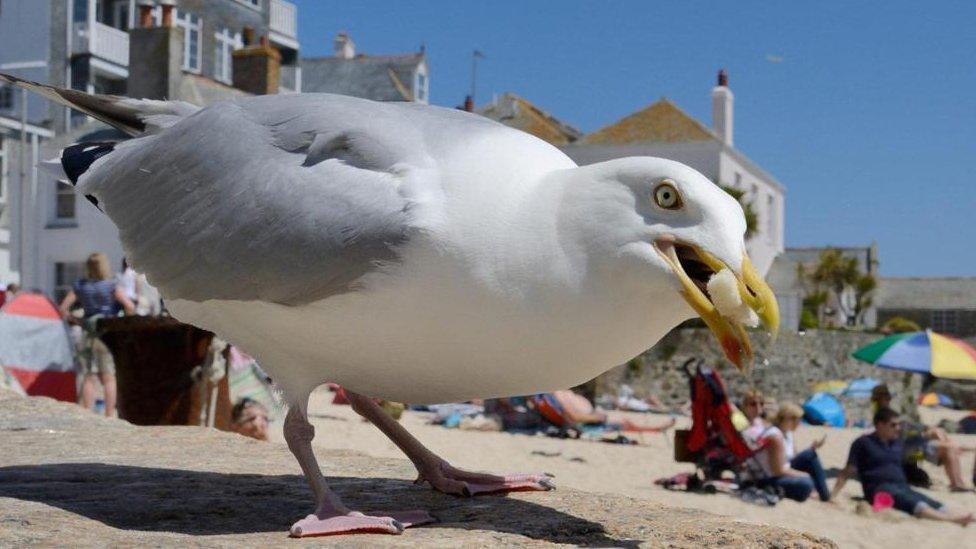Jersey ban on feeding 'nuisance' gulls launched
- Published

The law has been introduced as a way of tackling noise, damage and disease caused by gulls
A law to discourage people from feeding seagulls has come into force in Jersey.
It is now illegal to feed wild birds or other creatures in a way that means they become a nuisance or harmful to health.
Some birds and rodents carry diseases while also creating mess and noise.
The States of Jersey said: "If people stop feeding gulls and we limit food waste on the streets, it's hoped these birds will eventually revert to a more natural diet and return to the cliffs."
More Channel Islands stories here
People are being encouraged not to scatter food on the ground or feed the birds by hand, and risk being prosecuted if they do so.
'Spread of disease'
Stewart Petrie, Jersey's director of environmental health said: "We get a lot of calls from householders and businesses fed up with the noise, damage from faeces, building damage, spread of disease and other concerns that could be avoided.
"We definitely don't want to discourage people from feeding wintering birds, but it's important to do it in a way that doesn't attract feral chickens, cockerels, pigeons, rats, mice and seagulls."

Seagulls can develop habits of looking for food from unnatural sources
All gulls, their nests, eggs and chicks are protected under the Conservation of Wildlife (Jersey) Law 2000, external and can only be moved by licensed pest controllers.
The Jersey Society for the Prevention of Cruelty to Animals advises people to take steps to avoid gulls nesting on roofs.
If they do have nesting gulls, householders are advised to call pest controllers early, rather than in May or June when eggs or chicks are in the nest.
Last year a gull was moved from Jersey to neighbouring islands after repeatedly dive-bombing dog walkers.